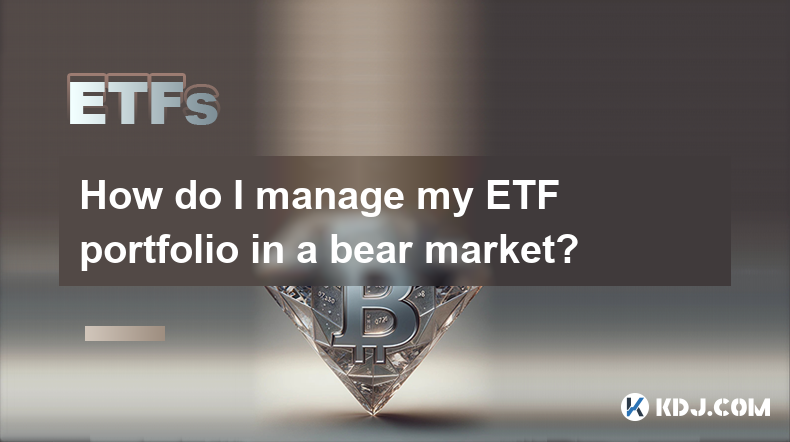-
 Bitcoin
Bitcoin $94,263.1102
6.66% -
 Ethereum
Ethereum $1,796.0138
10.68% -
 Tether USDt
Tether USDt $1.0002
0.03% -
 XRP
XRP $2.2843
8.98% -
 BNB
BNB $614.1507
1.44% -
 Solana
Solana $153.0124
9.92% -
 USDC
USDC $1.0000
0.01% -
 Dogecoin
Dogecoin $0.1833
12.01% -
 Cardano
Cardano $0.7081
10.97% -
 TRON
TRON $0.2466
-0.67% -
 Chainlink
Chainlink $14.9251
12.11% -
 Avalanche
Avalanche $23.0399
14.40% -
 Sui
Sui $2.9405
27.82% -
 Stellar
Stellar $0.2734
11.00% -
 UNUS SED LEO
UNUS SED LEO $9.0647
-0.09% -
 Shiba Inu
Shiba Inu $0.0...01377
10.31% -
 Hedera
Hedera $0.1879
8.77% -
 Toncoin
Toncoin $3.1443
7.75% -
 Bitcoin Cash
Bitcoin Cash $361.4165
4.29% -
 Polkadot
Polkadot $4.1768
11.51% -
 Litecoin
Litecoin $84.9758
6.68% -
 Hyperliquid
Hyperliquid $19.0960
5.18% -
 Bitget Token
Bitget Token $4.6210
4.03% -
 Dai
Dai $1.0000
0.01% -
 Ethena USDe
Ethena USDe $0.9993
0.02% -
 Pi
Pi $0.6742
6.81% -
 Monero
Monero $226.4704
4.42% -
 Pepe
Pepe $0.0...09245
14.03% -
 Uniswap
Uniswap $6.0077
12.23% -
 Aptos
Aptos $5.3777
11.09%
How do I manage my ETF portfolio in a bear market?
In a bear market, it's crucial to rebalance your ETF portfolio, adjust positions, and consider diversifying across asset classes and sectors to mitigate risk and position for future growth.
Jan 07, 2025 at 06:38 am

Key Points:
- Understanding the Impact of a Bear Market on ETF Portfolios
- Revisiting Investment Strategy and Goals
- Rebalancing and Tax Considerations
- Diversification and Risk Mitigation
- Monitoring Performance and Adjusting Positions
How to Manage Your ETF Portfolio in a Bear Market
Navigating a bear market, characterized by prolonged declines in stock prices, requires thoughtful portfolio management to safeguard investments and position for future growth. Here are detailed steps to guide you through this challenging period:
1. Understand the Impact of a Bear Market on ETF Portfolios:
- ETFs track a specific market index or asset class, hence their performance is directly tied to the underlying assets.
- During a bear market, the value of stocks declines significantly, negatively impacting the value of equity ETFs.
- Conversely, fixed income ETFs, such as bond ETFs, may benefit from investors seeking safe havens. However, rising interest rates can also negatively impact bond prices.
2. Revisit Investment Strategy and Goals:
- Assess your risk tolerance and investment horizon. Are you willing to withstand further market volatility?
- Re-evaluate your investment goals. If you're investing for long-term growth, short-term fluctuations may not derail your plans.
- Consider dollar-cost averaging, investing a fixed amount at regular intervals, to smooth out market fluctuations.
3. Rebalancing and Tax Considerations:
- Rebalance your portfolio periodically to maintain your desired asset allocation.
- Sell underperforming assets and buy undervalued ones to capitalize on opportunities.
- Be mindful of tax implications when selling assets. Consider tax-advantaged accounts or loss harvesting strategies to optimize your returns.
4. Diversification and Risk Mitigation:
- Diversify your portfolio across multiple asset classes and sectors to reduce overall risk.
- Consider adding low-volatility ETFs or inverse ETFs that can generate gains when the market declines.
- Explore alternative investments, such as real estate or commodities, to further diversify your holdings.
5. Monitoring Performance and Adjusting Positions:
- Regularly monitor your portfolio's performance and compare it to benchmarks.
- Identify underperforming ETFs and consider replacing them with better alternatives.
- Be prepared to adjust your positions as market conditions change. This may involve selling underperforming assets or increasing exposure to undervalued ones.
FAQs:
- What are the best ETFs to buy in a bear market?
- Consider defensive ETFs like the SPDR Gold Shares (GLD) or the iShares Core U.S. Aggregate Bond ETF (AGG).
- Look for low-volatility ETFs like the iShares MSCI U.S. Minimum Volatility ETF (USMV) or the Russell 1000 Value ETF (IWD).
- Explore inverse ETFs like the ProShares Short S&P 500 (SH) or the Direxion Daily Semiconductor Bear 3X Shares (SOXS).
- What are the biggest risks of investing in ETFs during a bear market?
- Significant capital losses due to falling stock prices
- Liquidity concerns in less-traded ETFs
- Erosion of investor confidence leading to sell-offs
- How long should I stay invested in ETFs during a bear market?
- The duration of a bear market is unpredictable. Remain invested for as long as your risk tolerance and investment goals allow.
- Consider using the decline as an opportunity to buy undervalued assets and build a stronger portfolio for the future.
- What are some alternative investments to consider during a bear market?
- Real estate investment trusts (REITs)
- Commodities like gold and oil
- Private equity or venture capital funds
Disclaimer:info@kdj.com
The information provided is not trading advice. kdj.com does not assume any responsibility for any investments made based on the information provided in this article. Cryptocurrencies are highly volatile and it is highly recommended that you invest with caution after thorough research!
If you believe that the content used on this website infringes your copyright, please contact us immediately (info@kdj.com) and we will delete it promptly.
- title: Bitcoin (BTC) price reaches six-week high as US-based BTC ETFs record $936.4 million net inflow
- 2025-04-23 16:45:12
- Bitcoin Surpasses $93,000 Again
- 2025-04-23 16:45:12
- Trump Media and Crypto.com to Launch a Series of Exchange-Traded Funds
- 2025-04-23 16:40:12
- Richard Heart, Founder of HEX and PulseChain Crypto Projects, Wins Rare Legal Victory Against the SEC
- 2025-04-23 16:40:12
- Immutable (IMX) Token Price Skyrockets 44%
- 2025-04-23 16:35:12
- The saying “A rising tide lifts all boats” perfectly captures the current state of the crypto market
- 2025-04-23 16:35:12
Related knowledge

What role does SEC play in Bitcoin ETF approval?
Feb 25,2025 at 06:48am
Key Points:SEC's Role in Bitcoin ETF Approval ProcessHistorical Efforts to Establish a Bitcoin ETFSEC's Criteria for Bitcoin ETF ApprovalPotential Impact of a Bitcoin ETF on the Cryptocurrency MarketTimeline and Outlook for Bitcoin ETF ApprovalArticle:SEC Play in Bitcoin ETF ApprovalThe United States Securities and Exchange Commission (SEC) plays a crit...

Who is eligible to issue Bitcoin ETFs?
Feb 25,2025 at 11:13am
Key Points:Only regulated financial institutions with the necessary expertise and infrastructure are eligible to issue Bitcoin ETFs.The Securities and Exchange Commission (SEC) has not yet approved any spot Bitcoin ETFs, but has approved several futures-based ETFs.Applicants must meet stringent requirements, including having a strong track record and su...

What impact does Bitcoin ETF have on the market?
Feb 25,2025 at 11:37am
Key Points:Introduction to Bitcoin ETFs and their role in the cryptocurrency marketHistorical development and performance of Bitcoin ETFsPotential benefits of Bitcoin ETFs for investors and the marketRisks and limitations associated with Bitcoin ETFsRegulatory considerations and their impact on Bitcoin ETFsArticle:Introduction to Bitcoin ETFsBitcoin exc...

Which investors are Bitcoin ETFs suitable for?
Feb 27,2025 at 04:01pm
Key Points:Understanding Bitcoin ETFsBenefits of Bitcoin ETFsSuitability of Bitcoin ETFs for Different InvestorsAssessing Risk Tolerance and Investment GoalsConsidering Short-Term and Long-Term StrategiesExamining Tax ImplicationsSeeking Professional AdviceUnderstanding Bitcoin ETFsBitcoin exchange-traded funds (ETFs) are investment vehicles that track ...

What is the administrative expenses of Bitcoin ETFs?
Feb 26,2025 at 12:24am
Key Points:Administrative expenses are a crucial factor to consider when evaluating Bitcoin ETFs.These expenses can significantly impact the performance of the fund and ultimately the investor's returns.Understanding the various components of administrative expenses is essential for informed decision-making.Comparing administrative expenses across diffe...

What are the fees for purchasing Bitcoin ETFs?
Feb 27,2025 at 07:13pm
Key Points:Bitcoin exchange-traded funds (ETFs) are a cost-effective and regulated way to gain exposure to Bitcoin.Fees associated with Bitcoin ETF purchases vary depending on the platform, trading volume, and account type.It is essential to evaluate fee structures carefully to optimize investment returns.Fees Associated with Purchasing Bitcoin ETFs1. B...

What role does SEC play in Bitcoin ETF approval?
Feb 25,2025 at 06:48am
Key Points:SEC's Role in Bitcoin ETF Approval ProcessHistorical Efforts to Establish a Bitcoin ETFSEC's Criteria for Bitcoin ETF ApprovalPotential Impact of a Bitcoin ETF on the Cryptocurrency MarketTimeline and Outlook for Bitcoin ETF ApprovalArticle:SEC Play in Bitcoin ETF ApprovalThe United States Securities and Exchange Commission (SEC) plays a crit...

Who is eligible to issue Bitcoin ETFs?
Feb 25,2025 at 11:13am
Key Points:Only regulated financial institutions with the necessary expertise and infrastructure are eligible to issue Bitcoin ETFs.The Securities and Exchange Commission (SEC) has not yet approved any spot Bitcoin ETFs, but has approved several futures-based ETFs.Applicants must meet stringent requirements, including having a strong track record and su...

What impact does Bitcoin ETF have on the market?
Feb 25,2025 at 11:37am
Key Points:Introduction to Bitcoin ETFs and their role in the cryptocurrency marketHistorical development and performance of Bitcoin ETFsPotential benefits of Bitcoin ETFs for investors and the marketRisks and limitations associated with Bitcoin ETFsRegulatory considerations and their impact on Bitcoin ETFsArticle:Introduction to Bitcoin ETFsBitcoin exc...

Which investors are Bitcoin ETFs suitable for?
Feb 27,2025 at 04:01pm
Key Points:Understanding Bitcoin ETFsBenefits of Bitcoin ETFsSuitability of Bitcoin ETFs for Different InvestorsAssessing Risk Tolerance and Investment GoalsConsidering Short-Term and Long-Term StrategiesExamining Tax ImplicationsSeeking Professional AdviceUnderstanding Bitcoin ETFsBitcoin exchange-traded funds (ETFs) are investment vehicles that track ...

What is the administrative expenses of Bitcoin ETFs?
Feb 26,2025 at 12:24am
Key Points:Administrative expenses are a crucial factor to consider when evaluating Bitcoin ETFs.These expenses can significantly impact the performance of the fund and ultimately the investor's returns.Understanding the various components of administrative expenses is essential for informed decision-making.Comparing administrative expenses across diffe...

What are the fees for purchasing Bitcoin ETFs?
Feb 27,2025 at 07:13pm
Key Points:Bitcoin exchange-traded funds (ETFs) are a cost-effective and regulated way to gain exposure to Bitcoin.Fees associated with Bitcoin ETF purchases vary depending on the platform, trading volume, and account type.It is essential to evaluate fee structures carefully to optimize investment returns.Fees Associated with Purchasing Bitcoin ETFs1. B...
See all articles
























































































